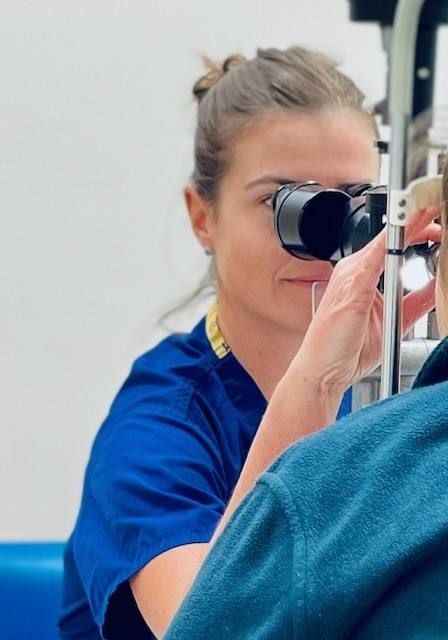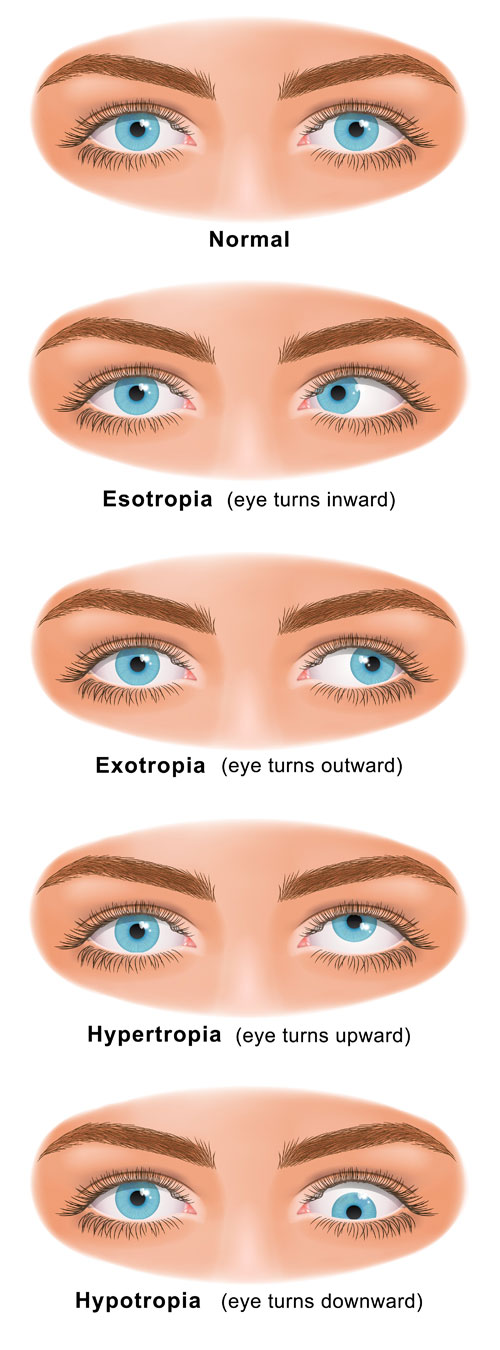Revelle Littlewood Consultant Ophthalmologist
MBBS, FRCOphth
Consultant Ophthalmic Surgeon
Neuro-Ophthalmology and Adult Strabismus

Revelle is a consultant ophthalmologist specialising in neuro-ophthalmology and adult strabismus (squint). Her NHS post is at the Manchester Royal Eye Hospital, which is a tertiary referral centre for neuro-ophthalmology and adult strabismus.
Her medical career started in the North West, including a twelve-month post at the Walton Centre in Liverpool, to enhance her neuroscience experience. She undertook ophthalmic specialist training from 2014 in South Yorkshire then spent a year obtaining further sub-specialty expertise by undertaking a fellowship in neuro-ophthalmology and adult strabismus at the renowned Manchester Royal Eye Hospital.
As part of the neuro-ophthalmic and strabismus team, Revelle provides secondary care to patients of Manchester as well as offering second opinions or further management of complex patients from elsewhere within the region. Her current NHS role involves specialised clinics in both adult neuro-ophthalmology and strabismus, strabismus surgery (eye muscle surgery), Botox treatments to eye muscles and cataract surgery.
Revelle is also involved in the teaching of ophthalmic specialty trainees in neuro-ophthalmology, strabismus, Botox injections, strabismus surgery and cataract surgery as a clinical and educational supervisor. She is an examiner for the Royal College of Ophthalmologists.
What is neuro-ophthalmology?
Neuro-ophthalmology is the sub-specialty undertaken by ophthalmologists or neurologists, with expertise in the complex interaction between the brain and the eyes.
Neuro-ophthalmologists deal with issues that affect the the visual pathway at any point from optic nerve until the visual cortex.
Why would I need to see a neuro-ophthalmologist?
Common reasons to see a neuro-ophthalmolgist include;
- Optic nerve dysfunction (For example – Optic nerve inflammation, Optic nerve ischaemia, Optic nerve pallor)
- Optic disc swelling or pseudo-swelling
- Visual field defects
- Visual field loss following stroke
- Unequal pupil/pupil asymmetry or pupil abnormalities
- Acute onset double vision
- Variable drooping of the lids
- Ocular myaesthenia gravis
- Visual function monitoring in intra-cranial tumours
- Visual function monitoring in neuro-ophthalmic conditions – IIH and GCA
- Intermittent visual symptoms
- Unexplained vision loss or unexplained visual symptoms
- Headaches resulting from eye problems

How do you assess my optic nerve?
To completely assess neurological visual function, it is typical to undertake additional ancillary testing. The commonly performed tests in neuro-ophthalmology include visual fields and OCT scans. Both tests are completely painless and take only a short while to complete.
- A visual field test assesses both eyes individually, to determine how well you can use your whole eye by testing the sensitivity of your peripheral vision to different strength light stimuli enabling it to map out areas in each visual field you do not see.
- An OCT scan, utilises light to obtain highly detailed ‘photographs’ of the structure of back part of your eyes. The scan can segment the layers of the retina and often picks up changes that we can not see clinically.
Double vision
Acute (sudden) onset ocular misalignment and resulting double vision or variable double vision generally arise as a result of a neuro-ophthalmic condition for which investigation and management of the symptoms are required. These neuro-ophthalmic causes of double vision can often get better with time without intervention or can be treated medically.

What is squint?
Strabismus, more commonly known as squint, is the ophthalmic sub-speciality that deals with ocular alignment. People often describe a turn in the eyes, for example an ‘inward drift’, an ‘outward drift’, an ‘upward drift’ etc. The eyes can be misaligned in just one or a combination of directions at the same time.
When the eyes do not work as a pair, generally one will look straight ahead to fix on the target whilst the other one drifts in the squinting direction. In some, the squinting eye can alternate, whereas in others the squinting eye remains constant. The misalignment may not be there all of the time.
What symptoms does a squint cause?
Ocular misalignment can cause different symptoms, depending upon the exact situation, but in general;
If a person has the ability to perceive vision from both eyes at the same time, they will appreciate double or less frequently panoramic vision, if their eyes become misaligned.
If a person lacks the ability to perceive vision from both eyes at the same time, they will not appreciate double vision, but will be aware of the cosmesis when their eyes are misaligned. Unfortunately in these cases, despite being deemed a ‘cosmetic’ issue, numerous psycho-social implications can arise, that impacts an individuals day-to-day functioning and interactions.
Can a squint be fixed?
Each case is individual, but generally double vision can be managed by occlusion, glasses, prism glasses, Botox injections and squint surgery. Ocular misalignment, that doesn’t cause double vision can be managed by Botox injections or squint surgery.
Squint surgery aims to realign the eyes into a more favourable position, to relieve double vision enabling 3-D vision or alternatively improve the cosmesis of the eyes.
NHS Practice @
Manchester Royal Eye Hospital
Oxford Road
Manchester
M13 9WL
Hospital switchboard:
0161 276 1234
Private Practice @
Private Patient Centre (Ward 54)
Manchester Royal Eye Hospital
Oxford Road
Manchester
M13 9WL
Contact:
info@revellelittlewood.com
